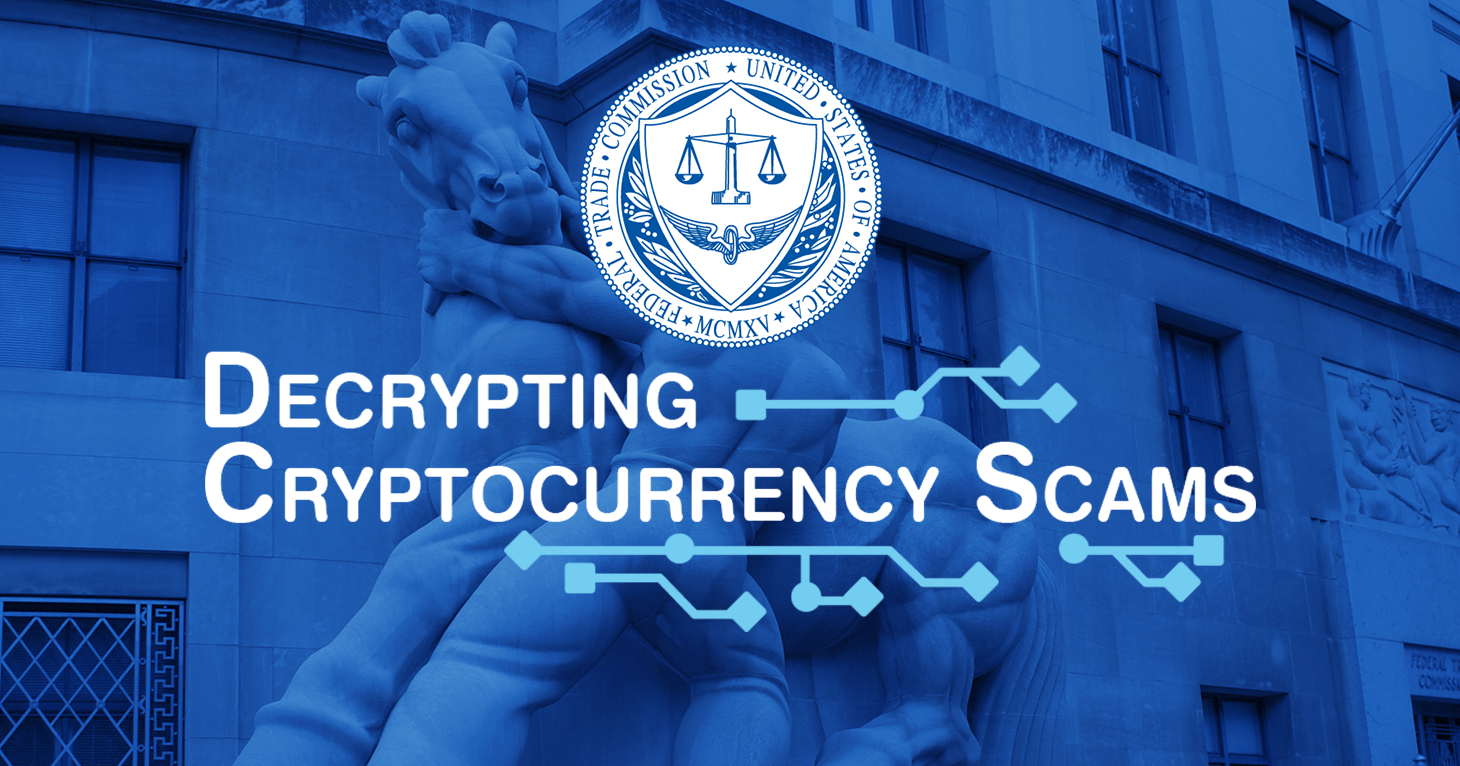
TINA’s Take: FTC Puts For-Profit Higher Education Institutions on Notice
A disproportionate number of students that have defaulted on their students loans attended for-profit colleges.
TINA.org gets the scoop on cryptoasset scams at FTC workshop.
WHAT’S UP
In the emerging cryptoasset marketplace, which includes cryptocurrencies, cryptocommodities and cryptotokens, a reported $9 million a day is lost to scams, schemes and swindles. Further, it is estimated that there is at least one new illegal venture started every day that promises great wealth to the unwitting consumer in the complicated and risky world of globally decentralized digital services. So what’s a consumer, or government agency for that matter, to do? That was the topic discussed at a half-day workshop hosted by the FTC in Chicago yesterday that TINA.org attended.
HOW WE GOT HERE
On Halloween 2008 an anonymous person (or persons), who went by the alias Satoshi Nakamoto, published a white paper entitled Bitcoin: A Peer-to-Peer Electronic Cash System. And so the first cryptocurrency known as bitcoin was born. Bitcoin’s DNA is made from blockchain, a distributed, cryptographic, immutable database that uses proof-of-work to function. It’s hella complicated, but suffice it to say that blockchain is a tamper-proof code that allows digital information to be securely distributed, and it is blockchain that breathes life into all cryptoassets.
Over the last decade, hundreds of cryptoassets have been developed with some, like bitcoin, becoming wildly lucrative for savvy investors while other legit ventures have failed wildly. And accompanying this new, innovative, and mostly unregulated economic ecosystem are the scammers, ready to take advantage of the general public’s enthusiasm and lack of knowledge about this rapidly evolving marketplace.
THE MARKETING PITCH IN QUESTION
Fraudulent enterprises, Ponzi schemes, pyramid schemes, pump-and-dump schemes, phishing scams, malware downloads — all of them are wrapped up in slick marketing packages that disguise these criminal enterprises as legitimate and valuable crypto investments. To quote the SEC, in a case involving a cryptocurrency startup that raised $32 million for an initial coin offering based on false claims: “We allege that the Centra co-founders went to great lengths to create the false impression that they had developed a viable, cutting-edge technology.” Among the ways the company allegedly deceived investors was through claiming business relationships with major credit card companies that it didn’t actually have. Inevitably, though, across all these schemes and scams the marketing pitch is always the same: You will make money!
But here’s the thing, no person (or company) can ever guarantee a return on investment when it comes to cryptoassets. In fact, cryptocurrency experts repeatedly caution that no one should ever invest more money than they are willing to lose. So unless you have money to burn (and we mean that literally), you should not dip your toe into this emerging market. And for those with extra cash on hand, you need to ignore the flashy marketing, and do your due diligence!
WHAT’S NEXT
The last panel of the day, which was comprised of attorneys from the FTC, SEC, and the Commodity Futures Trading Commission (CFTC), as well as a law professor and an industry insider, were all in agreement that the criminal element in which fraudulent companies disguise themselves as legitimate crypto entities is not going away anytime soon, despite the best efforts of state and federal law enforcement, industry insiders and consumer advocates. As such, they posited that the only hope appears to be turning off the spigot of money to the fraudsters. And the only way to achieve that is to educate consumers about the dos and don’ts of investing in cryptoassets.
For educational information regarding cryptoassets, you can check out these links from the following sources:
Stay tuned to TINA.org for more coverage on cryptoassets as we dig deeper into the marketing issues involved.
A disproportionate number of students that have defaulted on their students loans attended for-profit colleges.
Despite the splashy announcement, weight-loss ads persist on social media platform.
Odds are you being good at trivia is not enough if you want to pay off your student loan debt with this app.


